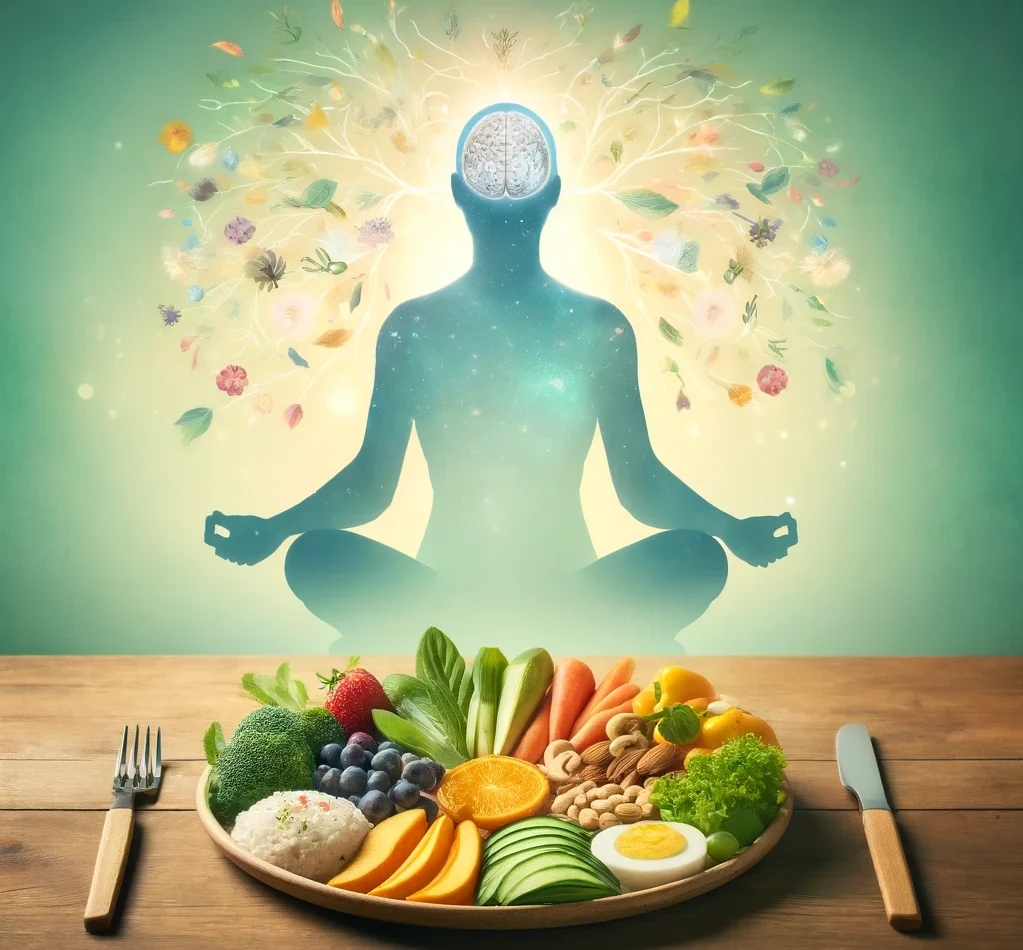
Mindfulness and fasting
Table of Contents
1. Introduction
In today’s fast-paced world, people often feel overwhelmed by distractions, stress, and unhealthy habits. Mindfulness and fasting are two ancient practices that, when combined, can help bring clarity, balance, and improved well-being. This blog explores how incorporating mindfulness and fasting into daily life can lead to a healthier and more focused lifestyle.
2. Understanding Mindfulness
Mindfulness is the practice of being fully present in the moment, aware of your thoughts, emotions, and surroundings without judgment. It helps in reducing stress, enhancing concentration, and fostering emotional resilience. Whether practiced through meditation, breathing exercises, or daily awareness, mindfulness allows individuals to connect with their inner selves.
3. The Power of Fasting
Fasting has been practiced for centuries in various cultures and religions for spiritual, health, and mental benefits. It involves voluntarily abstaining from food and sometimes beverages for a specific period. Fasting not only detoxifies the body but also enhances mental clarity, boosts metabolism, and improves overall health.
4. The Connection Between Mindfulness and Fasting
Mindfulness and fasting are deeply interconnected. When fasting, being mindful helps individuals control cravings, understand their body’s hunger signals, and develop discipline. It transforms fasting from a mere physical act into a mental and spiritual journey. Practicing mindfulness during fasting allows one to appreciate the experience, making it more fulfilling and beneficial.
5. Benefits of Practicing Mindfulness and Fasting Together
- Improved Self-Control: Mindfulness enhances self-awareness, making it easier to resist unhealthy food cravings during fasting.
- Enhanced Mental Clarity: Both practices reduce brain fog and increase focus.
- Emotional Stability: Mindfulness and fasting together help regulate emotions and reduce anxiety.
- Physical Health Benefits: Fasting supports digestion, weight management, and cellular repair, while mindfulness reduces stress-related ailments.
- Spiritual Growth: Many spiritual traditions use fasting and mindfulness to deepen faith and self-awareness.
6. Practical Tips for Incorporating Mindfulness and Fasting in Daily Life
- Start Small: Begin with short fasting periods and brief mindfulness exercises.
- Practice Mindful Eating: When not fasting, eat slowly and savor each bite.
- Use Meditation: Before or during fasting, meditate to calm the mind and enhance self-control.
- Stay Hydrated: Drink enough water to avoid dehydration during fasting periods.
- Reflect and Journal: Write about your experiences with fasting and mindfulness to track progress.
7. Common Challenges and How to Overcome Them
- Hunger and Discomfort: Gradually extend fasting periods to help the body adapt.
- Distractions: Use guided meditations or breathing exercises to refocus.
- Social Pressure: Educate friends and family about the benefits of your practice.
- Low Energy Levels: Ensure balanced nutrition when breaking the fast and get adequate rest.
8. Q&A Section
Q1: Can mindfulness help in dealing with hunger during fasting? Yes, mindfulness helps shift focus from hunger to self-awareness, making fasting more manageable.
Q2: How long should I fast as a beginner? Start with intermittent fasting (12-14 hours) and gradually increase as your body adapts.
Q3: Can I practice mindfulness without meditation? Absolutely! Mindfulness can be practiced through mindful eating, deep breathing, or simply being present in daily activities.
Q4: What foods should I eat after fasting? Opt for whole foods like fruits, vegetables, lean proteins, and healthy fats to nourish the body post-fasting.
Q5: Is fasting suitable for everyone? Fasting may not be suitable for pregnant women, individuals with certain medical conditions, or those with eating disorders. Consulting a healthcare professional is advised.
9. Conclusion
Mindfulness and fasting, when practiced together, offer a holistic approach to physical, mental, and spiritual well-being. By incorporating these practices into daily life, individuals can cultivate self-discipline, enhance focus, and lead a more balanced lifestyle. Start small, stay consistent, and experience the transformative power of mindfulness and fasting.
